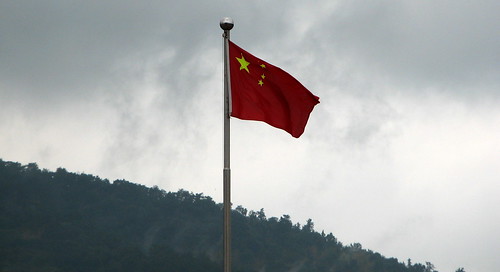Biden to sign strategic partnership deal with Vietnam in latest bid to counter China in the region
China #China

President Joe Biden will chalk up a fresh victory in his campaign to boost U.S. influence in the Indo-Pacific by sealing a deal with Vietnam next month aimed to draw Hanoi closer to Washington at a time of rising tensions with Beijing.
Biden will sign a strategic partnership agreement with Vietnam during a state visit to the Southeast Asian country in mid-September, according to three people with knowledge of the deal’s planning. They were granted anonymity because they weren’t authorized to speak on the record about the agreement.
The agreement will allow for new bilateral collaboration that will boost Vietnam’s efforts to develop its high technology sector in areas including semiconductor production and artificial intelligence.
Neither the White House nor the Vietnamese embassy in Washington responded to requests for comment.
The deal adds to Biden’s string ofsuccessful diplomatic initiatives aimed to reassert U.S. influence in Asia in the face of China’s growing economic, diplomatic and military muscle in the region. They include a historic Camp David summit Friday with Biden, Japanese Prime Minister Fumio Kishida and South Korean President Yoon Suk Yeol — aimed at addressing regional threats from North Korea and China.
The Vietnam agreement coincides with an uptick in tension between Hanoi and Beijing over long-standing territorial disputes in the South China Sea. Vietnam — along with the Philippines, Malaysia and Brunei — has long protested Beijing’s claim of authority over parts of the South China Sea that extend 1,200 miles from China’s coastline. Hanoi banned the Barbie movie last month due to a scene that appeared to reference the nine-dash line Beijing says marks its territorial waters. Satellite imagery released this week indicates China is building an airfield on an island that Hanoi says is Vietnamese territory.
But the agreement doesn’t necessarily signal that Vietnam is moving away from its giant neighbor China in favor of better ties with Washington.
“Vietnam is not aligning with the U.S. against China. … They’re happy to improve relations with the U.S., but it doesn’t mean they’re moving against China — they’re going to continue to calibrate very carefully,” said Scot Marciel, a former principal deputy assistant secretary for East Asia and the Pacific at the State Department who opened the first State Department office in Hanoi in 1993.
The deal symbolizes the steady improvement in U.S.-Vietnam ties since the two countries established diplomatic relations in 1995, ending two decades of frosty nonengagement following the end of the Vietnam War in 1975. The U.S. is now Hanoi’s largest trading partner behind China, Hanoi boasts a Peace Corps outpost andU.S. carrier groups now make port calls at Vietnam’s Da Nang harbor.
Marciel said the new partnership deal with Vietnam would accelerate that progress by sending an important signal to the Vietnamese government that better relations with the U.S. are a priority. “It gives a green light to the system to be open to opportunities to cooperate more with the United States,” Marciel said.
The agreement will mark an upgrade in U.S.-Vietnam ties guided by an existing Comprehensive Partnership deal signed by former President Barack Obama in 2013 that boosted bilateral cooperation in areas including public health, assistance for Vietnam’s coast guard and anti-transnational crime operations. But it also reflects how the U.S. is playing catch-up with Vietnam’s deeper ties with both Beijing and Moscow. Vietnam has had a “comprehensive strategic cooperative partnership” with China since 1998 and a similar deal with Russia for more than a decade. That highlights Hanoi’s pragmatic policy of friendly nonalignment with neighboring China, with whom Vietnam fought a border conflict in 1979, and the recognition of Russia’s decades of support dating to the Soviet era.
Biden can expect accusations of hypocrisy for championing a values-based foreign policy while upgrading ties with Vietnam’s repressive authoritarian one-party state.
“Vietnam’s human rights record has actually been getting worse, not better,” said Derek Grossman, senior defense analyst at the RAND Corporation. “There are definitely people out there who will be appalled by this deal, who will see this as a realpolitik way of doing things against China while ignoring the festering human rights situation in Vietnam,” Grossman said.